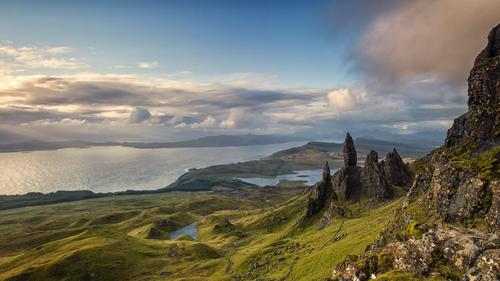Uncovering the Mysteries of Our Home Planet: Surprising Earth Information That Will Amaze You
Earth is a complex and fascinating planet that we call home. It’s full of life, beauty, and natural wonders that never cease to amaze us. With that in mind, let’s uncover some surprising earth information that will open your eyes to the marvels of our planet.
The Dynamic Earth
Did you know that Earth’s surface constantly changes due to tectonic activity? The movement of the Earth’s plates creates mountains, volcanoes, and rift valleys. The Ring of Fire, a long chain of volcanoes that stretches around the Pacific Ocean, is a prime example of the Earth’s dynamic nature. These natural phenomena shape our planet and constantly transform it.
Moreover, the Earth’s magnetic field protects us from harmful solar winds and cosmic radiation. Without this protective layer, life on Earth would not have evolved as it has. It’s also responsible for mesmerizing auroras which light up the polar regions, adding a touch of magic to our world.
The Blue Planet
Earth is also known as the blue planet, and for good reason. More than 70% of our planet’s surface is covered in water, which is critical for life as we know it. The oceans are teeming with life, from the largest mammal on earth – the blue whale – to tiny phytoplankton that generate much of the oxygen we breathe. Our planet’s water cycle constantly circulates water between the oceans, atmosphere, and land, driving our weather patterns.
However, the ocean’s health is under threat, with plastic pollution and climate change impacting our marine ecosystems. Awareness and action are critical for protecting this vital natural resource.
The Goldilocks Zone
Another fascinating aspect of our planet is its location in the ‘Goldilocks’ zone of our solar system. This is the perfect distance from the sun for the Earth’s temperature to be just right for life to thrive. We’re not too hot like Venus or too cold like Mars. The Earth’s atmosphere also has a critical role to play in regulating our planet’s temperature, ensuring that life can endure.
The Earth’s Cradle of Life
Finally, the Earth has an incredibly diverse range of habitats, from the icy polar regions to the lush, tropical rainforests. These habitats are home to millions of species, from the smallest bacteria to huge mammals like elephants and giraffes. The Earth’s cradle of life is a wonder to behold and a reminder of the immense importance of biodiversity.
In conclusion, the Earth is a unique and remarkable planet that never ceases to amaze us. From its dynamic nature to its blue oceans and diverse habitats, there is always something new to learn about our home planet. We must protect this precious natural resource by raising awareness, taking action, and nurturing our love for our planet.
(Note: Do you have knowledge or insights to share? Unlock new opportunities and expand your reach by joining our authors team. Click Registration to join us and share your expertise with our readers.)
Speech tips:
Please note that any statements involving politics will not be approved.
